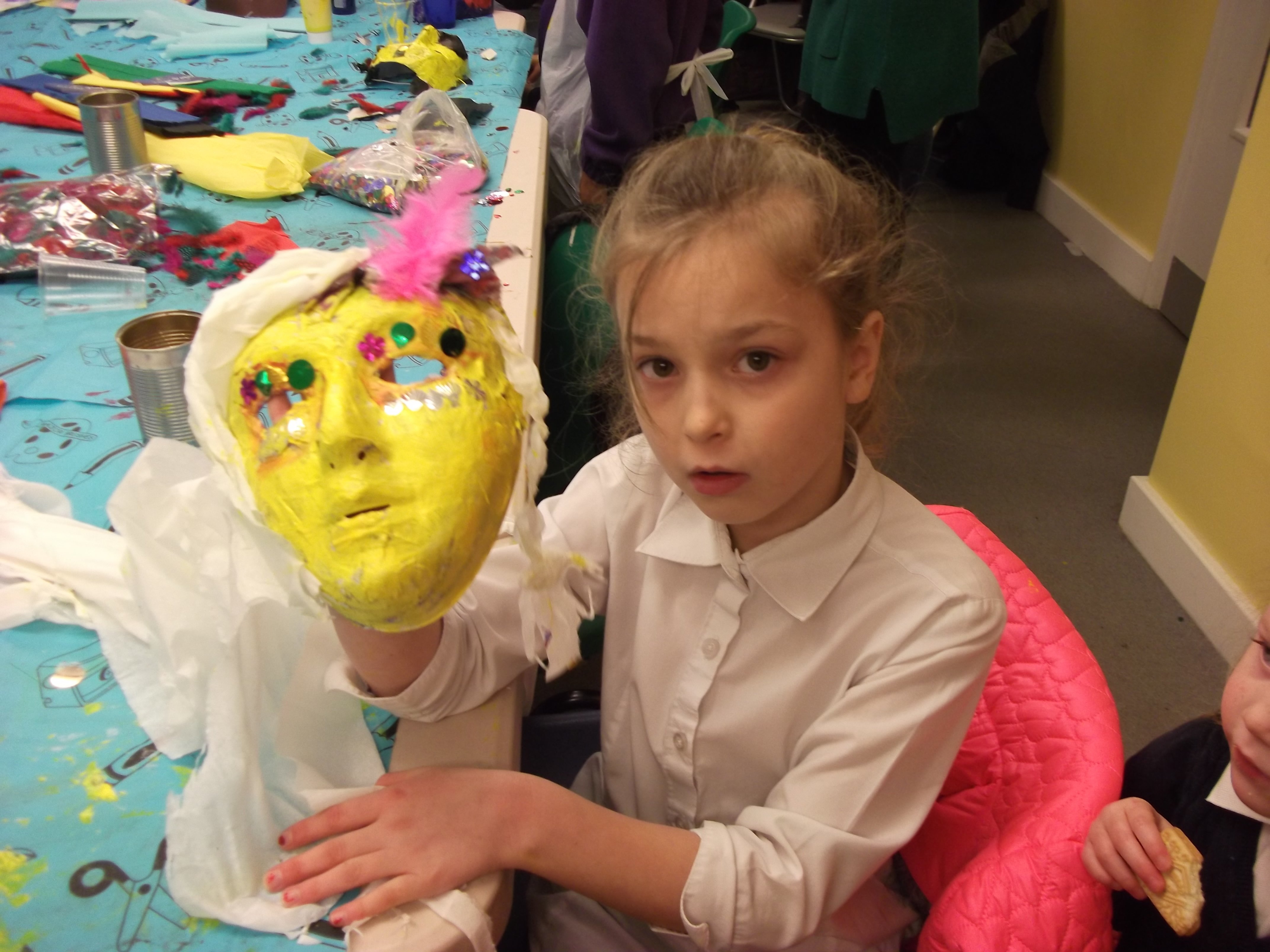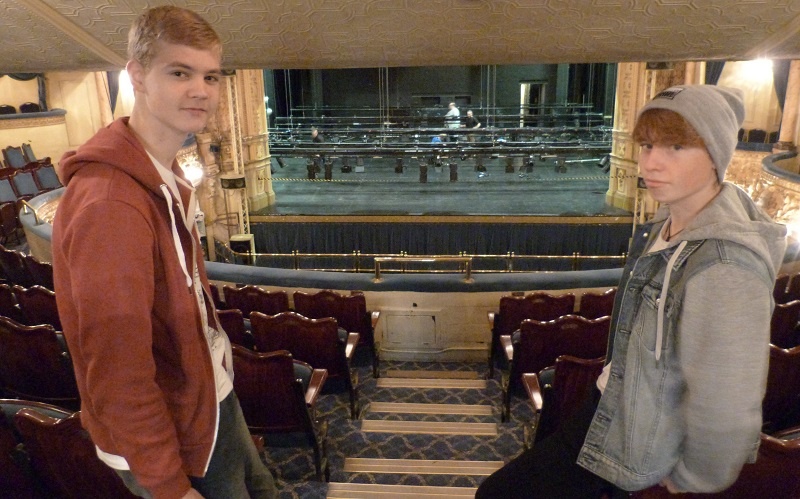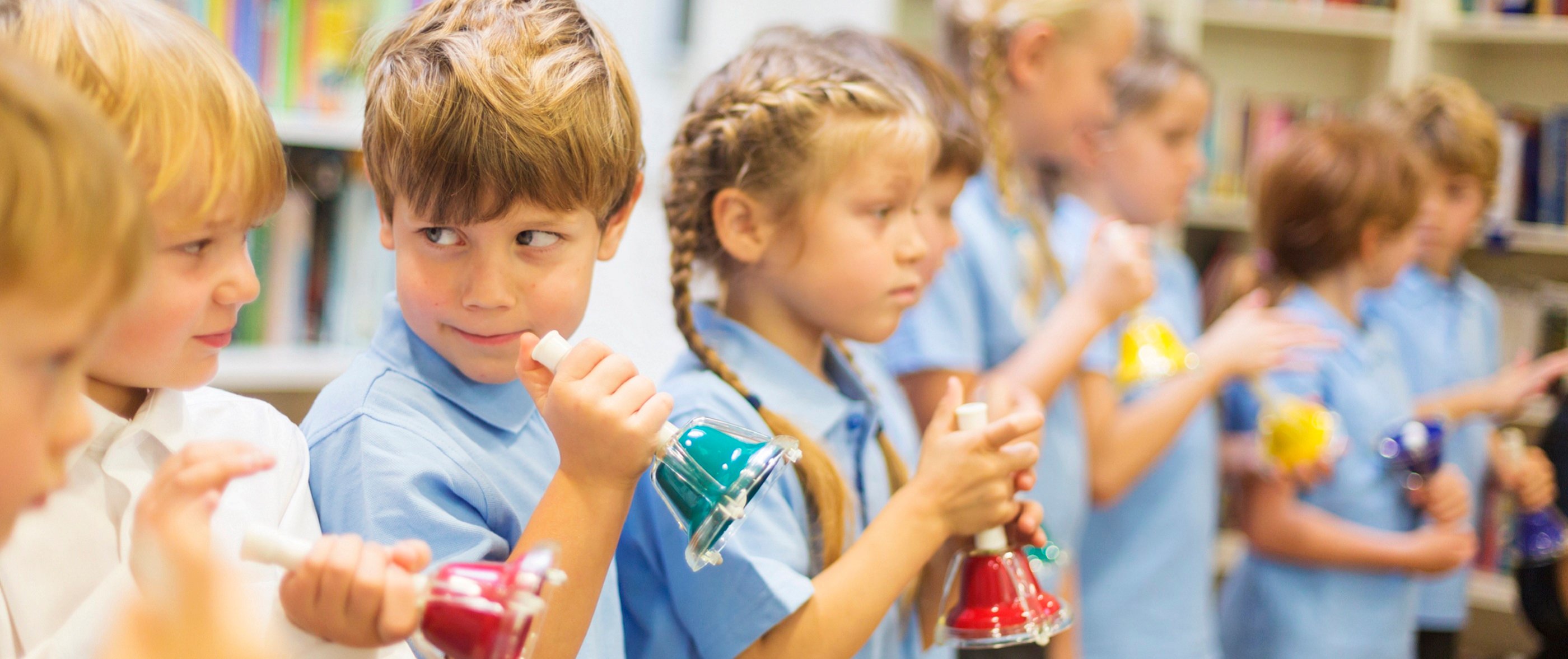.jpg)
Exploring drama and theatre skills through Arts Award
BY: Guest Writer
03 Dec 2024
In this blog we hear from Zoe Lamming, Practitioner and Coordinator at Mortal Fools, a theatre, drama and creative learning charity based in Northumberland, about how they embed drama and theatre skills into their Arts Award Explore delivery.
Our groups focus on supporting children and young people’s creativity, wellbeing and relational skills using the medium of drama. Young people are referred into our groups by a host partner, using criteria such as high levels of school absence, mental health or behavioural challenges, or inter-sectional needs. They take part in 12 weekly 2-hour sessions, with a showcase to invited friends and school staff at the end. Arts Award Explore is embedded into this programme.
Through our sessions, we provide accessible spaces, responding to the interests and experiences of the young people we work with, and producing theatre that is meaningful and communicates something about our young people’s experiences, ideas and opinions.
We use participation in creative activities to support the young people to develop confidence, creativity, and social skills, with the intention of improving their personal, social, and educational outcomes.
.jpg?width=377&height=251&name=MF_dukes-6%20(002).jpg)
We use drama games as a starting point for engaging groups, and as a way of delving into topics that the young people are interested in. For example, we use freeze frames as a way of telling stories and exploring emotions. We might start by using a well-known fairytale to create our freeze frames, but then move on to creating images of places the young people enjoy going to. We use our creative practice to start discussions and empower young people to express themselves. These activities all feed into Explore Part A, where we have explored a variety of theatre and drama related skills such as storytelling, film making, writing, physical theatre and audio recording across the projects we have run. Throughout Part A we monitor the activities that young people respond to, and design Part C around this.
For Part B we run a ‘spy week’ where we create a mystery solving experience for the group. We set-up a scenario that one of the Mortal Fools staff team have stolen the biscuits from the office and we need their help figuring out who did it. The group perform a number of tasks such as code breakers to find out more about Mortal Fools and get a clue each time. The final two suspects (who just so happen to be in the session with the young people) are then interviewed about their role and career in the arts. Then the group vote on who they think stole the biscuits and we all celebrate with some biscuits together at the end of the session.
In our most recent creative intervention project, we created audio stories with the young people for Explore Part C. We themed the project around nature, supported by our partnership with Natural England, and young people explored their relationship to outdoor spaces through writing and recording audio stories, including making their own sound effects, which we edited and added music to. We used headphones to allow the young people and their invited guests to listen back to the stories in different locations around the school.
.jpg?width=386&height=257&name=MF_dukes-77%20(002).jpg)
We always include a sharing of work at the end of our term. The structure of our showcase events is dependent on what the group have created for Part C, and on ensuring that everyone involved – performers and audience – have the best possible experience. The participants each invite one person – this could be a friend, classmate, support worker or teacher – who attends and takes part in the sharing event. As a theatre company, we see time and again the benefits to young people of being able to share what they have created with an audience – the young people tell us about the sense of achievement they feel after sharing something with others and getting a positive response from that audience builds self-confidence. We also use this sharing event to do Part D of the project so friends and teachers can share their reflections too.
In a recent project, the young people each wrote a short narrative piece about a place they loved. The group were nervous about performing the freeze frames they had created to demonstrate those locations. So, we invited the audience to join in with drama games and create the freeze frames with our participants whilst they shared their pieces of writing. This meant the young people felt less exposed and the audience were more engaged in the content, resulting in a really positive experience for everyone involved.
Feedback from previous creative interventions showed the impact on the participants in the following ways:
- Increased confidence and feeling valued and listened to
- Improved friendships, social interaction, and trust of others
- Better emotional regulation
- Ability to speak in front of people and express their ideas
- Opportunities to talk to people about their interests
- Gaining new creative experiences to help them express themselves.
Incorporating Arts Award means that the young people receive external recognition and are validated for their achievements through the programme. In addition to building confidence and connectivity, the young people also have a shared accomplishment and this is hugely beneficial.
'Being an actor with Mortal Fools has been an amazing experience and one I’ll always cherish. My confidence has been quite low in the past, but this has really helped me become more confident in front of people.' - Creative Intervention participant
'It’s just made me less of a shut off – I am way more of a person – I don’t know how to explain it, but I am just more of a normal person around people now, it’s like wow!'
- Creative Intervention participant
Find out more about our Creative Interventions work here. We love connecting with folks to share our practice and learning, get in touch by emailing marketing@mortalfools.org.uk.
Related posts

BY: Guest Writer
BY: Natalie Christopher



Comments & Replies